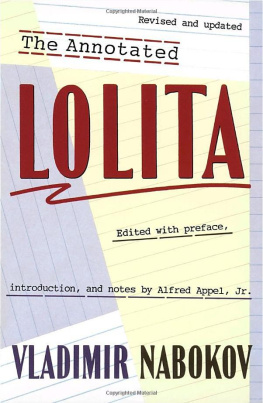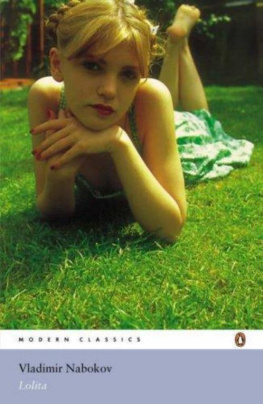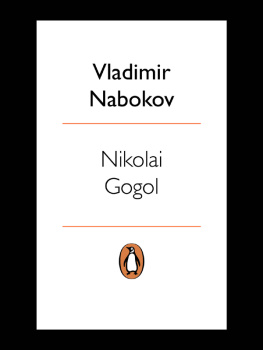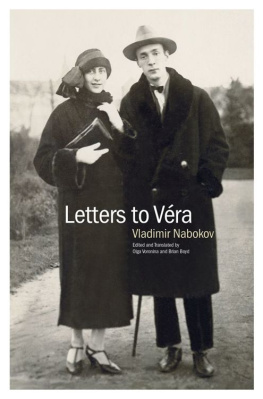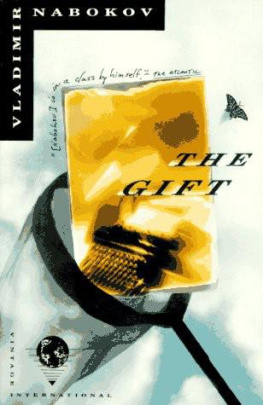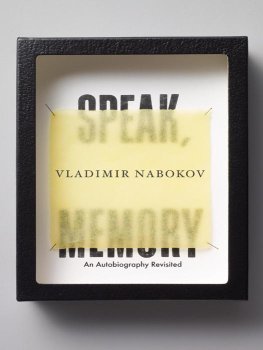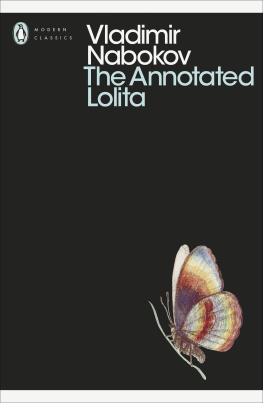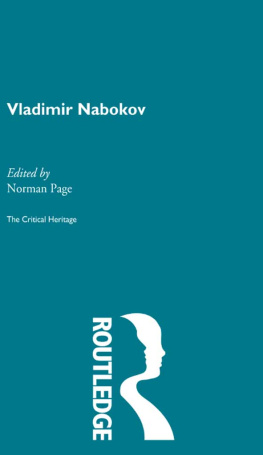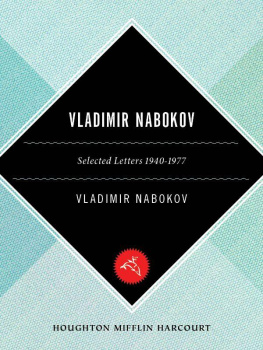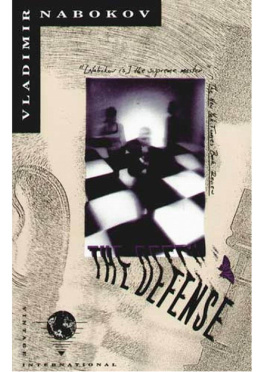Vladimir Nabokov - Ada, or Ador: A Family Chronicle
Here you can read online Vladimir Nabokov - Ada, or Ador: A Family Chronicle full text of the book (entire story) in english for free. Download pdf and epub, get meaning, cover and reviews about this ebook. genre: Prose / Romance novel. Description of the work, (preface) as well as reviews are available. Best literature library LitArk.com created for fans of good reading and offers a wide selection of genres:
Romance novel
Science fiction
Adventure
Detective
Science
History
Home and family
Prose
Art
Politics
Computer
Non-fiction
Religion
Business
Children
Humor
Choose a favorite category and find really read worthwhile books. Enjoy immersion in the world of imagination, feel the emotions of the characters or learn something new for yourself, make an fascinating discovery.

- Book:Ada, or Ador: A Family Chronicle
- Author:
- Genre:
- Rating:5 / 5
- Favourites:Add to favourites
- Your mark:
- 100
- 1
- 2
- 3
- 4
- 5
Ada, or Ador: A Family Chronicle: summary, description and annotation
We offer to read an annotation, description, summary or preface (depends on what the author of the book "Ada, or Ador: A Family Chronicle" wrote himself). If you haven't found the necessary information about the book — write in the comments, we will try to find it.
Ada, or Ador: A Family Chronicle — read online for free the complete book (whole text) full work
Below is the text of the book, divided by pages. System saving the place of the last page read, allows you to conveniently read the book "Ada, or Ador: A Family Chronicle" online for free, without having to search again every time where you left off. Put a bookmark, and you can go to the page where you finished reading at any time.
Font size:
Interval:
Bookmark:
Vladimir Nabokov
Ada, or Ardor: A Family Chronicle
to Vra
With the exception of Mr and Mrs Ronald Oranger, a few incidental figures, and some non-American citizens, all the persons mentioned by name in this book are dead.
[Ed.]
Part One
1
All happy families are more or less dissimilar; all unhappy ones are more or less alike, says a great Russian writer in the beginning of a famous novel (Anna Arkadievitch Karenina, transfigured into English by R.G. Stonelower, Mount Tabor Ltd., 1880). That pronouncement has little if any relation to the story to be unfolded now, a family chronicle, the first part of which is, perhaps, closer to another Tolstoy work, Detstvo i Otrochestvo (Childhood and Fatherland, Pontius Press, 1858).
Vans maternal grandmother Daria (Dolly) Durmanov was the daughter of Prince Peter Zemski, Governor of Bras dOr, an American province in the Northeast of our great and variegated country, who had married, in 1824, Mary OReilly, an Irish woman of fashion. Dolly, an only child, born in Bras, married in 1840, at the tender and wayward age of fifteen, General Ivan Durmanov, Commander of Yukon Fortress and peaceful country gentleman, with lands in the Severn Tories (Severnya Territorii), that tesselated protectorate still lovingly called Russian Estoty, which commingles, granoblastically and organically, with Russian Canady, otherwise French Estoty, where not only French, but Macedonian and Bavarian settlers enjoy a halcyon climate under our Stars and Stripes.
The Durmanovs favorite domain, however, was Raduga near the burg of that name, beyond Estotiland proper, in the Atlantic panel of the continent between elegant Kaluga, New Cheshire, U.S.A., and no less elegant Ladoga, Mayne, where they had their town house and where their three children were born: a son, who died young and famous, and a pair of difficult female twins. Dolly had inherited her mothers beauty and temper but also an older ancestral strain of whimsical, and not seldom deplorable, taste, well reflected, for instance, in the names she gave her daughters: Aqua and Marina (Why not Tofana? wondered the good and sur-royally antlered general with a controlled belly laugh, followed by a small closing cough of feigned detachment he dreaded his wifes flares).
On April 23, 1869, in drizzly and warm, gauzy and green Kaluga, Aqua, aged twenty-five and afflicted with her usual vernal migraine, married Walter D. Veen, a Manhattan banker of ancient Anglo-Irish ancestry who had long conducted, and was soon to resume intermittently, a passionate affair with Marina. The latter, some time in 1871, married her first lovers first cousin, also Walter D. Veen, a quite as opulent, but much duller, chap.
The D in the name of Aquas husband stood for Demon (a form of Demian or Dementius), and thus was he called by his kin. In society he was generally known as Raven Veen or simply Dark Walter to distinguish him from Marinas husband, Durak Walter or simply Red Veen. Demons twofold hobby was collecting old masters and young mistresses. He also liked middle-aged puns.
Daniel Veens mother was a Trumbell, and he was prone to explain at great length unless sidetracked by a bore-baiter how in the course of American history an English bull had become a New England bell. Somehow or other he had gone into business in his twenties and had rather rankly grown into a Manhattan art dealer. He did not have initially at least any particular liking for paintings, had no aptitude for any kind of salesmanship, and no need whatever to jolt with the ups and downs of a job the solid fortune inherited from a series of far more proficient and venturesome Veens. Confessing that he did not much care for the countryside, he spent only a few carefully shaded summer weekends at Ardis, his magnificent manor near Ladore. He had revisited only a few times since his boyhood another estate he had, up north on Lake Kitezh, near Luga, comprising, and practically consisting of, that large, oddly rectangular though quite natural body of water which a perch he had once clocked took half an hour to cross diagonally and which he owned jointly with his cousin, a great fisherman in his youth.
Poor Dans erotic life was neither complicated nor beautiful, but somehow or other (he soon forgot the exact circumstances as one forgets the measurements and price of a fondly made topcoat worn on and off for at least a couple of seasons) he fell comfortably in love with Marina, whose family he had known when they still had their Raduga place (later sold to Mr Eliot, a Jewish businessman). One afternoon in the spring of 1871, he proposed to Marina in the Up elevator of Manhattans first ten-floor building, was indignantly rejected at the seventh stop (Toys), came down alone and, to air his feelings, set off in a counter-Fogg direction on a triple trip round the globe, adopting, like an animated parallel, the same itinerary every time. In November 1871, as he was in the act of making his evening plans with the same smelly but nice cicerone in a caf-au-lait suit whom he had hired already twice at the same Genoese hotel, an aerocable from Marina (forwarded with a whole weeks delay via his Manhattan office which had filed it away through a new girls oversight in a dove hole marked RE AMOR) arrived on a silver salver telling him she would marry him upon his return to America.
According to the Sunday supplement of a newspaper that had just begun to feature on its funnies page the now long defunct Goodnight Kids, Nicky and Pimpernella (sweet siblings who shared a narrow bed), and that had survived with other old papers in the cockloft of Ardis Hall, the Veen-Durmanov wedding took place on St Adelaidas Day, 1871. Twelve years and some eight months later, two naked children, one dark-haired and tanned, the other dark-haired and milk-white, bending in a shaft of hot sunlight that slanted through the dormer window under which the dusty cartons stood, happened to collate that date (December 16, 1871) with another (August 16, same year) anachronistically scrawled in Marinas hand across the corner of a professional photograph (in a raspberry-plush frame on her husbands kneehole library table) identical in every detail including the commonplace sweep of a brides ectoplasmic veil, partly blown by a parvis breeze athwart the grooms trousers to the newspaper reproduction. A girl was born on July 21, 1872, at Ardis, her putative fathers seat in Ladore County, and for some obscure mnemonic reason was registered as Adelaida. Another daughter, this time Dans very own, followed on January 3, 1876.
Besides that old illustrated section of the still existing but rather gaga Kaluga Gazette, our frolicsome Pimpernel and Nicolette found in the same attic a reel box containing what turned out to be (according to Kim, the kitchen boy, as will be understood later) a tremendous stretch of microfilm taken by the globetrotter, with many of its quaint bazaars, painted cherubs and pissing urchins reappearing three times at different points, in different shades of heliocolor. Naturally, at a time one was starting to build a family one could not display very well certain intrieurs (such as the group scenes in Damascus starring him and the steadily-smoking archeologist from Arkansas with the fascinating scar on his liver side, and the three fat whores, and old Archies premature squitteroo, as the third male member of the party, a real British brick, drolly called it); yet most of the film, accompanied by purely factual notes, not always easy to locate because of the elusive or misleading bookmarks in the several guidebooks scattered around was run by Dan many times for his bride during their instructive honeymoon in Manhattan.
The two kids best find, however, came from another carton in a lower layer of the past. This was a small green album with neatly glued flowers that Marina had picked or otherwise obtained at Ex, a mountain resort, not far from Brig, Switzerland, where she had sojourned before her marriage, mostly in a rented chalet. The first twenty pages were adorned with a number of little plants collected at random, in August, 1869, on the grassy slopes above the chalet, or in the park of the Hotel Florey, or in the garden of the sanatorium neat: it (my nusshaus, as poor Aqua dubbed it, or the Home, as Marina more demurely identified it in her locality notes). Those introductory pages did not present much botanical or psychological interest; and the fifty last pages or so remained blank; but the middle part, with a conspicuous decrease in number of specimens, proved to be a regular little melodrama acted out by the ghosts of dead flowers. The specimens were on one side of the folio, with Marina Dourmanoff
Font size:
Interval:
Bookmark:
Similar books «Ada, or Ador: A Family Chronicle»
Look at similar books to Ada, or Ador: A Family Chronicle. We have selected literature similar in name and meaning in the hope of providing readers with more options to find new, interesting, not yet read works.
Discussion, reviews of the book Ada, or Ador: A Family Chronicle and just readers' own opinions. Leave your comments, write what you think about the work, its meaning or the main characters. Specify what exactly you liked and what you didn't like, and why you think so.


